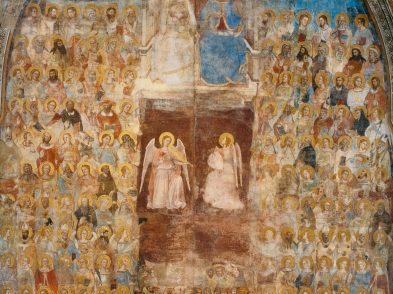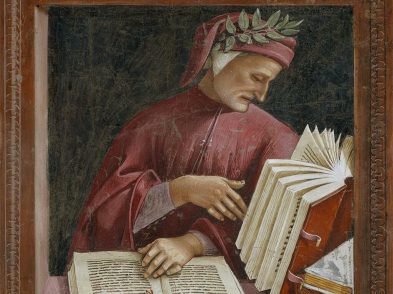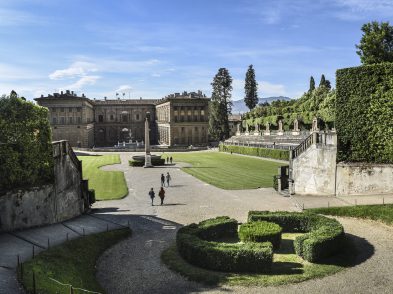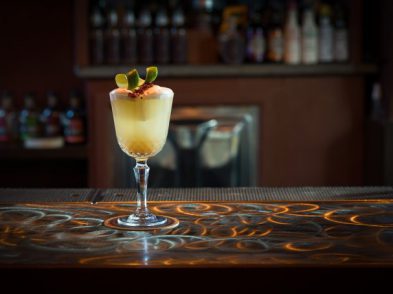Count Niccol? Capponi is a part of Florence?s living history. His family has been in the city since the thirteenth century and he is a historian. After earning a PhD in military history from the University of Padova, he returned to Florence, where he currently teaches political science and the history of Florence to Americans studying abroad. He is, most recently, author of Victory of the West: The Story of the Battle of Lepanto, as well as I legionari rossi: Le brigate internazionali nella guerra civile spagnola 1936-1939, a history of the international brigades during the Spanish Civil War. The Florentine?s Alexandra Lawrence sat down with him at his family home on via dei Bardi, Palazzo Capponi delle Rovinate.
The Florentine: Where does your title of ?Count? Capponi come from?
Niccol? Capponi: Actually, the title of count is not the most important one that I carry. The most important one is ?Florentine Patrician?. It was a title given to the important families who were politically prominent during the Republic or during the Medicean Grand Duchy. So it?s closed; the historical conditions that brought it into being don?t exist anymore.
The title of count was given to Ferrante Maria Capponi in the year 1701 by the Holy Roman Emperor, from cheating him out of his money, actually. We still have the letter. Back in Tuscany, the Grand Duke wouldn?t accept him at court with the title of Count of the Holy Roman Empire because they were trying to be independent, so in 1722 he was given another title of count. My father says I should stop debunking family myths because they?re good for selling wine! But as a historian, I can?t help it.
TF: How far back do your Florentine roots go?
NC: For sure to 1215. There is some circumstantial evidence that we go back to 1056, but without the documentation to prove it, it remains a hypothesis.
TF: What guild affiliation did your family have during the 1200s?
NC: Silk. We started?as most families did in Florence?with the rise of the guilds. A lot of petty nobles from the countryside moved into town to try to find fortune there and quickly became bourgeoisie. We started with silk, moved into wool, then back to silk, then banking. That?s how we made it?through very good networking.
TF: Has your profession as historian influenced how you look at your past?
NC: Growing up, I was made to relate to my past, so I have always felt that connection. But I do think Florence has lost its connection with its past. Siena still has that connection. Florentines (whatever Florentines are left, that is) don?t seem to love their city. The Sienese love their city.
TF: What makes it difficult for the Florentines to love Florence?
NC: The problem with Florence is that it?s a nineteenth-century phenomenon, covered with this heavy Renaissance cloak. It wasn?t like that before. There were new ideas, and buildings were being made and being made intelligently. Then with the Renaissance revival everything that wasn?t Renaissance was bad. There was little debate?despite Florence being culturally very alive until the 1960s. It?s like a good dish that has been left in the fridge too long and everyone wants a taste and everyone remembers what a good dish it was and how it tasted, but it?s not the same. But having said all of this, I must also admit that Florence is a magical city. It has its own magic. It?s like a disease, and once you catch it, you can never get rid of it.
TF: Is that what keeps people coming back?
NC: Yes, but non-Florentines are quick to notice how closed we are. On top of that, we have a wicked sense of humour. My mother is not Florentine and she is shocked at the things that come out of my mouth! But Florentines are so funny and they have respect for absolutely nothing?not just out of malice, but because everything is a joke.
TF: What keeps you coming back? Was there ever a moment in your travels when you thought about leaving Florence for good?
NC: I have spent time away from Florence. And when I come back and I see a row of cypress trees, one thing comes immediately to mind: civilization. My roots are here and, let?s be honest, the world as we know it originates here. Modern western history began here, in Florence.
TF: Do you have children?
NC: I have two daughters, Francesca and Ludovica; they are seven and five.
TF: What is their relationship to Florence? What do they understand about their Florentine heritage?
NC: Recently my older daughter saw the Capponi coat of arms and got very excited because she said she knew that meant one thing: that they were countesses. My youngest wasn?t impressed though; she said she wants to be a princess. Now that?s Florentine ambition at work.








